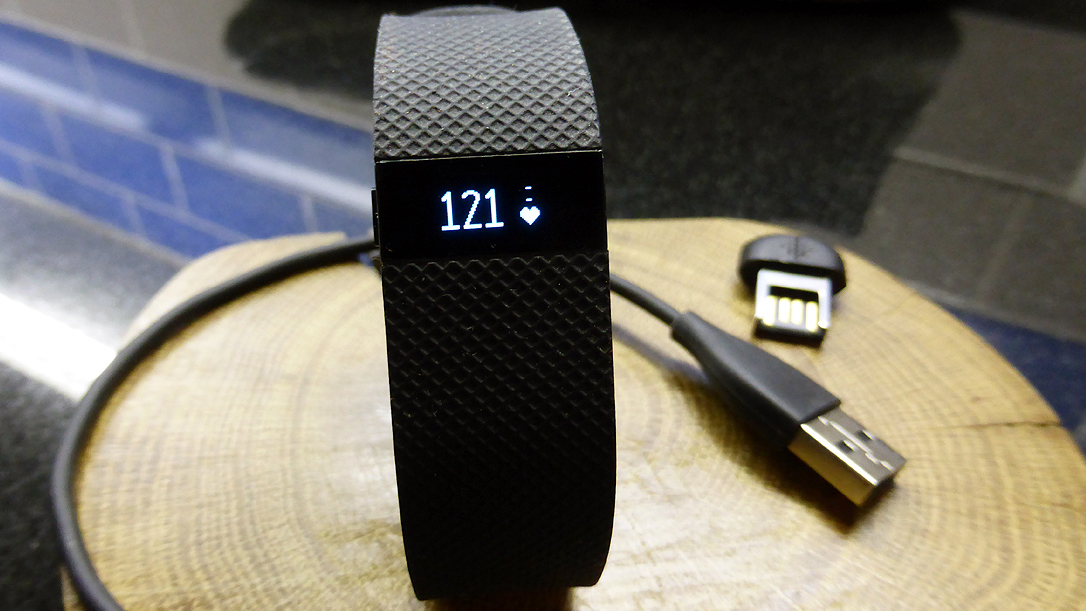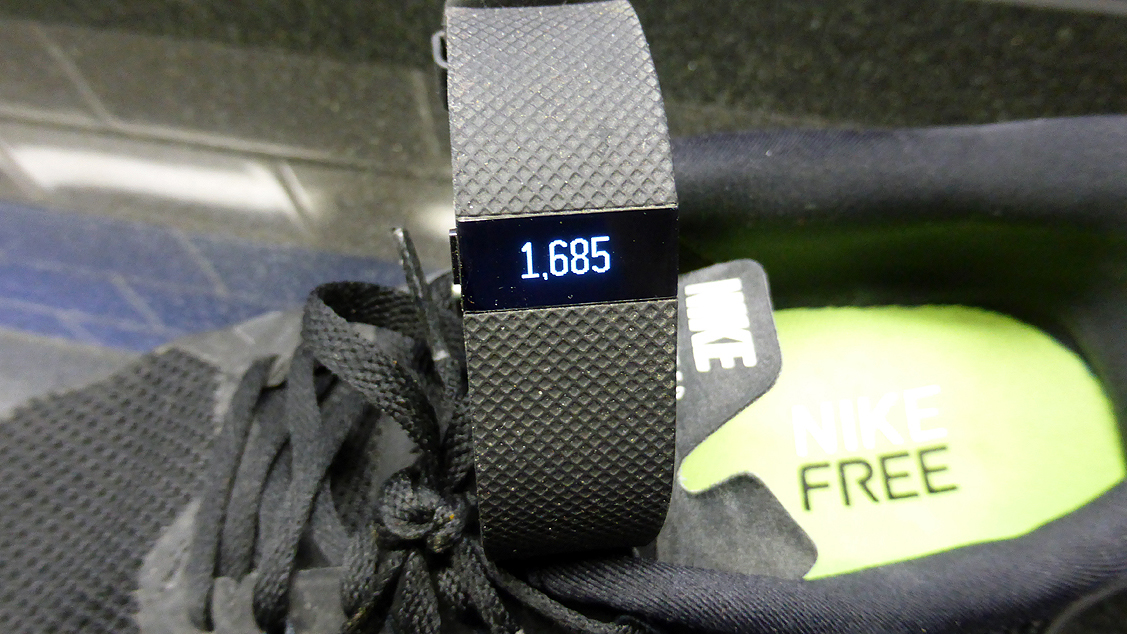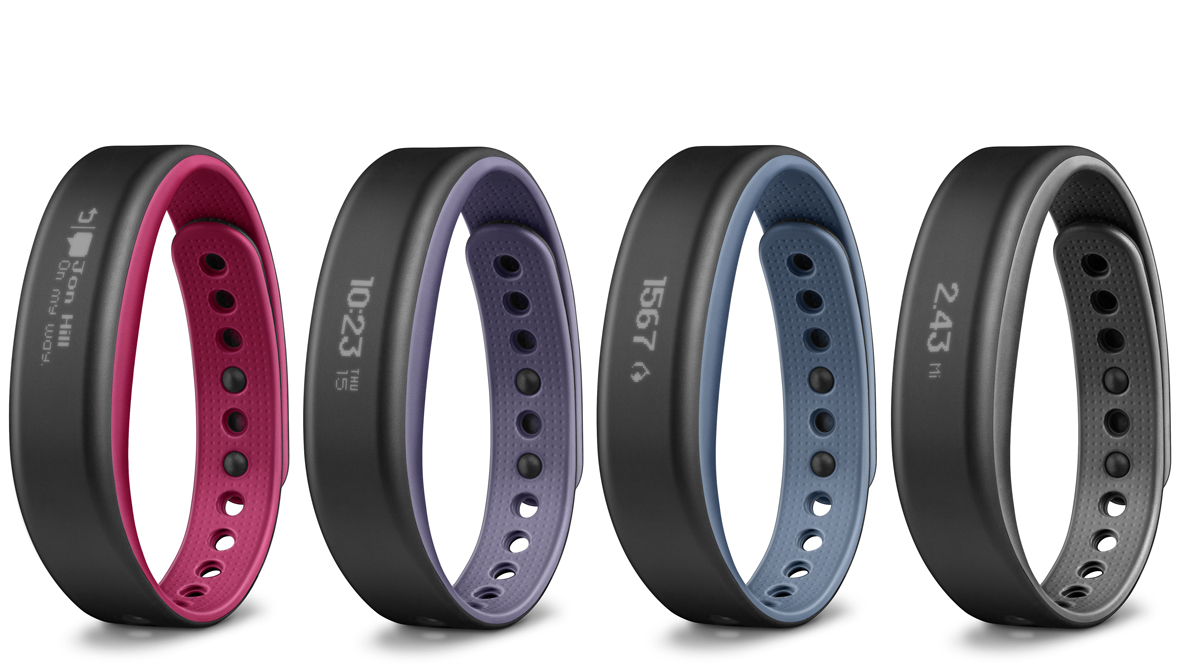Garmin Vivosmart vs Fitbit Charge HR: which is better?
Will the Vivosmart or Charge HR take best mid-level fitness tracker title?

Fitbit reigns supreme in the world of fitness trackers, and for good reason. Started in 2007, it quickly began rolling out devices that were not only efficient, but also affordable for mainstream consumers.
Fast-forward to 2015. There are several companies on the market that now manufacture fitness trackers like those churned out by the San Francisco company, and everyday customer now know just how much these devices can really do. Aside from tracking your daily number of steps, many of them can record everything from heart rate to active calorie burn.
Garmin is one company that was willing to test the waters with a line of fitness trackers that do more for a slightly higher price. The Vivo Line, which consists of the Vivofit 2, Vivosmart and VivoActive, has given Fitbit a run for its money.
To narrow the playing field, we decided to take a look at how Fitbit's Charge HR matches up against Garmin's Vivosmart. If you're in the market for a "middle of the pack" fitness tracker, one of these devices may perfectly serve your needs.

Fitbit Charge HR ($149.95/£100/AU$200)
Heart rate monitoring - The Fitbit Charge is designed to continuously monitor your heart rate and let you know when you're in one of these three "zones" - Fat Burn (moderate intensity), Cardio (high intensity) and Peak (maximum intensity).
Sleep tracking - The Charge HR tracks your sleep and automatically syncs your statistics to the Fitbit app. You can also schedule a silent alarm, which will make the device softly vibrate when you need to roll out of bed.
Extended battery life - Fitbit products are known for having long battery lives, and the Charge HR is no different. This device should get an average of five days of battery life without needing a charge.
Get daily insight, inspiration and deals in your inbox
Sign up for breaking news, reviews, opinion, top tech deals, and more.
Extensive fitness monitoring - You can track your workouts, distance, calories burned, floors climbed, active minutes, heart rate and steps during exercise as well as automatically throughout the day. The Charge HR also gives you real-time run statistics and allows you to review your routes.
Caller ID and watch display - Unlike the Fitbit Zip or Flex, the Charge HR comes with a display that shows the time of day. Additionally, you'll receive call notifications on the tracker, assuming you're using a compatible smartphone.
Wireless syncing - Like many trackers on the market, the Charge HR automatically and wirelessly syncs to the Fitbit app and your computer. It's compatible with more than 150 leading smartphones, including Android devices and the iPhone.
Social sharing - By creating a Fitbit account, you can access the Fitbit social network. Here, you can follow your Fitbit device-using friends, "cheer on" your colleagues, share your own statistics, and "challenge" your friends to meet fitness goals.

Garmin Vivosmart with Heart Rate Monitor ($179.99/£140/AU$200)
Heart rate monitoring - You can track your heart rate if you purchase the Vivosmart bundle, which comes with a monitor that you can strap to your chest. Garmin also created "zones" (Levels 1 through 5, escalating in intensity) to let you know how hard your heart is working.
Swipe display - Vivosmart's display truly gives it a futuristic feeling, allowing you to swipe through your notifications with your finger on the band.
Daily fitness tracking - The Vivosmart tracks your active calorie burn, steps and distance automatically throughout the day.
Wearability - Garmin is quick to highlight the Vivosmart's ability to take on water (up to 50 meters, for you swimmers out there). You also don't have to be afraid of wearing it in the shower.
Sleep monitoring - The Vivosmart will automatically track your sleep if you program it to recognize your daily sleeping times. You can also set a silent alarm to have the device gently vibrate when it's time to wake up.
Extended battery life - Garmin claims that the Vivosmart can last up to seven days without needing to be charged, which surpasses the Charge HR.
Smart notifications - Not only will the Vivosmart let you know when you're receiving a call, but it will also stream text and app notifications from your smartphone onto the display of the device.
"Time to Move" - The Vivosmart's "Time to Move" feature will notify you when you've been physically inactive for one hour. Getting up and taking a short walk will reset the timer, as well as encourage your body to produce fat-burning enzymes.